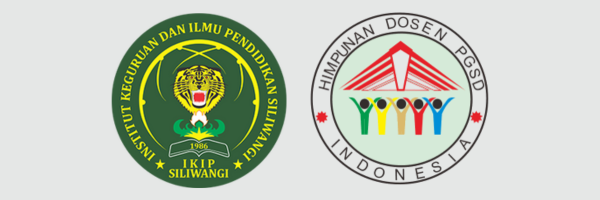Development of AKM Numeracy Instruments on Numbers, Geometry & Measurement Materials for Grade IV Elementary School Students
DOI:
https://doi.org/10.22460/pej.v7i1.3567Abstrak
The results of the PISA Study show that students' numeracy abilities are still below average. So far, students' knowledge is still focused on the concept of counting, without knowing the usefulness and benefits of mathematical concepts in everyday life. This study aimed to develop and validate the AKM numeracy instrument on numbers, geometry, and measurements for Grade IV elementary school students. This research uses the type of  Research and Development (R&D) development research, using the ADDIE model which has 5 stages, namely Analyze, Design, Development, Implementation, and Evaluation. The data collected is data on students' numeracy abilities obtained through testing the AKM instrument on numeracy on numbers, geometry, and measurements specifically for 4th-grade elementary school students. Data content validity, empirical validity, and reliability that has been collected was analyzed by content validity (Gregory, 2000), Product Moment, and Cronbach's Alpha. The results of the assessment of the two validators shows that the numearcy AKM instrument is categorized as having a high validity of 0.70. Based on the results of the descriptive statistical analysis of the Numeracy AKM test, it is known that the mean value is 88, whil minimum numeracy score is 48, and the maximum score is 100 with a standard deviation of 13.81. The reliability test results that the value of rcount > rtable is 0.949 > 0.423. Thus, it can be concluded that the developed numeracy test instrument is valid or has high reliability and can be used to collect research data related to student numeracy.
Keywords: Instrument Development Numeracy, Minimum Competency Assessment (AKM)
Referensi
Angga, cucu suryana, ima nurwahidah, D. (2022). Jurnal basicedu. Jurnal Basicedu, 6(4), 5877–5889. https://doi.org/10.31004/basicedu.v5i4.1230
Apriatni, S., Yuhana, Y., Matematika, S. P., Sultan, U., & Tirtayasa, A. (n.d.). PENGEMBANGAN INSTRUMEN LITERASI NUMERASI MATERI TRIGONOMETRI. 2759, 185–198. https://doi.org/10.20527/edumat.v10i2.13720
D.M. Andikayana, N. Dantes, & I.W. Kertih. (2021). Pengembangan Instrumen Asesmen Kompetensi Minimum (Akm) Literasi Membaca Level 2 Untuk Siswa Kelas 4 Sd. Jurnal Penelitian Dan Evaluasi Pendidikan Indonesia, 11(2), 81–92. https://doi.org/10.23887/jpepi.v11i2.622
Indrawati, M. D. (2018). Pengembangan Instrumen Penilaian Literasi Sains Fisika Peserta Didik Pada Bahasan Gelombang Bunyi Di Sma Negeri 1 Gedangan Sidoarjo. Jurnal Inovasi Pendidikan Fisika (JIPF), 07(01), 14–20.
Kumalasani, M. P., Fitri, D., Aini, N., & Kusumaningtyas, D. I. (2022). Komponen Instrumen AKM Pada Proses Kognitif Soal AKM Literasi Membaca. JIKAP PGSD: Jurnal Ilmiah Ilmu Kependidikan, 6(2), 289–293.
Masitoh, L. F., & Weni, G. A. (2020). Pengembangan Instrmen Asesmen Higher Order Thinking Skills (HOTS) Matematika. Jurnal Cendekia: Jurnal Pendidikan Matematika, 04(02), 886–897.
Nadhiif, M. A., Diantoro, M., & Sutopo. (2015). Tes Isomorfik Berbasis Komputer untuk Diagnostik Miskonsepsi Diri pada Materi Gaya dan Hukum Newton. Jurnal Pendidikan Sains, 3(2), 58–67.
Nuzulia, N., & Gafur, A. (2022). Development of Minimum Competency Assessment (AKM)- Based Exercise Books to Improve Students’ Literacy and Numeracy Ability at Sdn Janti 02 Sidoarjo. Madrosatuna: Journal of Islamic, 6(1), 1–14. https://doi.org/10.21070/madrosatuna.v6i1.1564
Pendidikan, M. (2019). Program pasca sarjana pendidikan guru madrasah ibtidaiyah iain salatiga 2019.
Ridha Aulia Putri, S. L. H. (2021). Jurnal basicedu. Jurnal Basicedu, 5(4), 2541–2549. https://doi.org/10.31004/basicedu.v5i4.1230.
Rohim, D. C. (2021). Konsep Asesmen Kompetensi Minimum untuk Meningkatkan Kemampuan Literasi Numerasi Siswa Sekolah Dasar. Jurnal VARIDIKA, 33(1), 54–62. https://doi.org/10.23917/varidika.v33i1.14993.
Sensus, M., Arifin, K., & Munir, A. (2022). Validitas Soal pada Asesmen Kompetensi Minimum Materi Ekologi SMA Kelas X. Jurnal Biologi Dan Pembelajarannya, 14(1), 1–10.
Studi, P., Guru, P., Dasar, S., Pendidikan, J. I., Keguruan, F., Ilmu, D. A. N., & Dharma, U. S. (2022). PENGEMBANGAN SOAL ASESMEN KOMPETENSI MINIMUM ( AKM ) NUMERASI UNTUK SISWA KELAS V SEKOLAH PENGEMBANGAN SOAL ASESMEN KOMPETENSI MINIMUM ( AKM ) NUMERASI UNTUK SISWA KELAS V SEKOLAH.
Winata, A., Widiyanti, I. S. R., & Cacik, S. (2021). Analisis Kemampuan Numerasi dan Literasi Membaca Peserta Didik Kelas XI MA Islamiyah Senori Tuban. Prosiding SNasPPM VI Universitas PGRI Ronggolawe, 6(1), 659–666. http://prosiding.unirow.ac.id/index.php/SNasPPM%0Ameningkatkan












